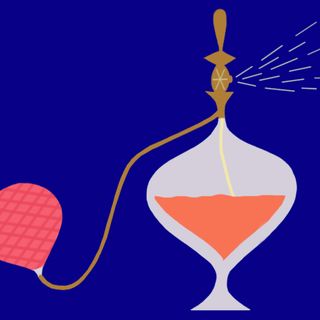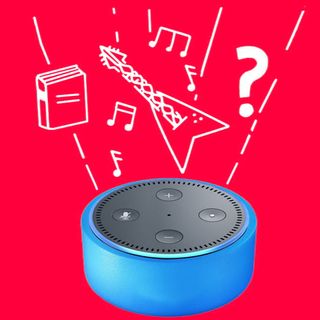
The Mom Tech Industry Needs A Revolution
Funder disinterest and a lack of women in STEM are keeping moms from getting optimized products.

Lying in bed half-naked, I held my 2-day-old daughter TaoTao and tried to get her to latch. My nipples were cracked and bleeding as I screamed inside, “Please, be gentle!” My mother-in-law was standing beside my bed, anxiously watching her granddaughter, and when she sensed that TaoTao was struggling to get milk, she started cheering: “Suck harder! Suck harder!” That’s when my tears began to fall, and I screamed out loud: “Enough! I am done breastfeeding!”
Except I wasn’t. I switched to exclusive pumping instead. As a biologist by training, I strongly believe in the health benefits of breast milk and didn’t want to deprive TaoTao of the right to it. It’s a hell of a lot more work, exclusively pumping, but luckily we had a four-person army to divide and conquer the task. My mother-in-law washed the 30+ bottle parts every day, my father-in-law cooked nutritious meals three times a day to increase my supply, my husband changed TaoTao’s diapers and fed her every three hours, while I pumped every two hours around the clock. We did that for 6 months.
There are millions of new moms who struggle like I did, but who don’t have the help I had. The national rate for exclusive breastfeeding at 6 months in the US, where I live, was only 22.3% in 2016, which means that over 3 million moms stopped breastfeeding earlier than recommended by the American Association of Pediatrics. The Indian national rate for exclusive breastfeeding between 0 to 5 months is better – 55% in 2016. But regardless of where you live – breastfeeding is hard. Ask any new mom around you, and she will tell you how painful it is if the baby latches incorrectly, how hard it is to maintain a pumping schedule and good milk supply after returning to work, and how inconvenient it is to travel anywhere while breastfeeding. Although breast milk is promoted as “liquid gold,” we mothers are certainly not treated as “gold producers.” Instead, mothers are frequently the objects of public shame for exposing their breasts to feed their screaming infants. And it doesn’t help that family guests seem to care more about the well-being of the baby than the mother.
All venting aside, I started to think about why the lactation industry is not making enough innovations for new moms while there are so many new technologies and products for the baby. A major reason is that a baby’s problems, such as crying, are easy for everyone to talk about and for a dad to experience and understand. Breastfeeding problems are not. They are private and hard to talk about, and difficult for people who haven’t breastfed themselves to understand. When I was so engorged that I had to ask my husband for help, I didn’t feel beautiful showing him my extremely large breasts, and he definitely couldn’t understand how painful it was. Similarly, I never spoke to my male boss about the pumping room feeling like a dungeon or the inconvenience of traveling while pumping. Most moms just endure such pains and inconveniences.
And because the engineering industry is currently dominated by men who are not able to understand their female customers’ struggles, how could they develop new products for them that are both functional and user-friendly? Did you know the most popular breast pump was developed by a male engineer? No wonder it doesn’t provide a good user experience! When women aren’t adequately represented in traditionally male-dominated sectors like STEM, women’s user experiences get overlooked, especially when the matter at hand is as private and specific to women as breastfeeding. All of this means women get saddled with less-than-perfect products that don’t really take their needs into account.
But shouldn’t the breast pump industry know their product isn’t user-friendly by now? Well, yes and no. Breast pumps have been around for the last hundred years, but the working and pumping mom is only now becoming more common. A lot of problems, such as lacking pumping time and the pump being too loud, are new. Why don’t breast pump manufacturers make the pumps more effective and quieter? I can almost hear their arguments: “The current product is cleared by the FDA, covered by insurance, and does a good-enough job. We have existing infrastructures to support the R&D, manufacturing, and sales of existing products, so why take the risk and disrupt ourselves?”
What about start-ups? Well, having talked to a couple of venture capitalists (VCs), I actually did hear their arguments: “This market does not provide the desired ROI (Return On Investment) for us, to be worth our while.” This is primarily because developing new mom tech, such as a breast pump, requires at least a couple million dollars of upfront investment for conducting R&D, setting up manufacturing, getting FDA clearance, and establishing sales and marketing channels. Getting insurance agencies to cover the cost of the breast pump is another huge hurdle; it all adds up to at least three years to recoup the initial investment. And when the alternative is funding the next Instagram, which could scale up in the next year, it’s very rational for any VC to say “No, thank you” to promising mom tech.
For the few mom tech start-ups lucky enough to obtain that initial VC funding, their products will be too expensive for most consumers in order to meet their investors’ demand for an immediate return.
So are we hopeless and helpless? Absolutely not. Change might be slow but it’s on the way. MIT recently organized a Breast Pump Hackathon that called for inclusive design which would be more affordable to low-income families and change in policy to extend paid maternity leave. A few promising start-ups, bootstrapped by frustrated moms and dads, are bridging the gap in the industry.
But we need all moms to stand at the forefront of this revolution by sharing breastfeeding stories (the good, the bad and the ugly). It’s also vital that we raise awareness with anyone willing to listen – employers, spouses, neighbors, social media followers, policymakers, and even male engineers. Breastfeeding may seem like a private topic, but the only way we can improve the experience for our daughters is by talking about it and innovating. Just like the TimesUp movement has provided a platform of solidarity for women to demand more representation in the making of and the focus of films, we need suffering new moms to collectively voice their pain and demand the same of tech innovators in order to bring about change in this sector.
Juan Chen is a mom and entrepreneur based in Boston. After experiencing breastfeeding and pumping challenges, she founded LacTeck to create lactation technologies, like the Pump2Baby bottle, that make breastfeeding easier. She graduated from MIT with an MBA in 2014. In her spare time, she loves going to the New England Aquarium with her 3 year old daughter TaoTao and friends.
Related


Fragrant Body Products Pollute the Air As Much As Car Exhaust
